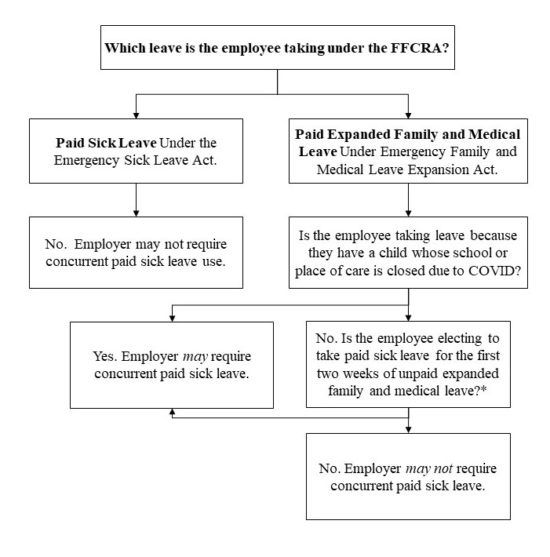SeyfarthSynopsis: The Department of Labor recently issued additional "questions and answers" ("Q&A") relating to the Families First Coronavirus Response Act ("FFCRA"). Below are a few key takeaways as employers reassess leave requirements for this summer.
1. COVID-Related Summer Camp Closures (Q&A Nos. 67 and 93)
For months, many employees have juggled working from home with their children engaged in distance learning, some using FFCRA or other leave benefits during this time. Now, workers and employers are faced with a new, inevitable question: "Schools are closed for the summer. Camps are also closed because of COVID. Now what?"
The Q&As now specifically clarify that a "place of care" under the FFCRA — defined as a physical location where care is provided for a child — includes summer camps and summer enrichment programs, in addition to more obvious facilities like day cares, preschools, before and after school care programs, schools, homes, and respite care programs.
The new Q&A also explains that the closure of a child's school or other "place of care" for summer vacation (or any other reason not related to COVID-19) is not a qualifying reason for leave under the FFCRA. However, the employee may be entitled to take leave if their child's care provider during the summer-such as a summer camp or other summer school program-is closed or unavailable because of the pandemic.
Similarly, the Q&As provide that an employee who has been working from home successfully so far while also caring for their child, without taking FFCRA leave, is entitled to request leave at any time subject to an appropriate request and necessary documentation as required. The fact that the employee had been teleworking with children at home would not disqualify him/her from requesting leave at some later point because of the child's camp or other place of care for the summer is closed because of COVID-19.
2. FFCRA Leave for Employees Already on Workers' Compensation, Temporary Disability, and Other Employer-Approved Leaves of Absence (Q&A Nos. 76 and 77)
The Q&As clarify that an employee generally may not take leave under the FFCRA if they are already on leave and receiving workers' compensation or temporary disability benefits, unless the employee was able to return to light duty before taking FFCRA leave. In other words, if the employee was able to return to light duty, but then an FFCRA qualifying reason prevents the employee from continuing to work, the employee would be eligible for FFCRA leave. Otherwise, if the employee is on workers' compensation leave and would not be able to return because of the injury or because there is no light duty work, the employee would be eligible for FFCRA even if she experiences a qualifying event during the leave period.
On the other hand, an employee who is taking a voluntary leave of absence may end their leave and request FFCRA leave for a qualifying reason that prevents them from being able to work or telework. However, an employee who is on a mandatory leave of absence may not take FFCRA leave even if he experiences a qualifying event during the leave period. According to the Q&A, this is because the mandatory leave of absence is preventing the employee's ability to work, and not a FFCRA qualifying reasons. Nevertheless, depending on the circumstances, an employee on a mandatory leave of absence may be eligible for unemployment benefits, and should contact their state unemployment agency for questions about eligibility.
3. Employers May Require Minimal Documentation from Employees Taking Leave to Seek Medical Diagnosis for COVID Symptoms (Q&A No. 92)
The Q&As have now clarified what documentation employers may require from an employee who claims to have COVID-19 symptoms and is taking leave to seek a medical diagnosis.
Employers may only require employees to identify:
- Their symptoms; and
- A date for a test or doctor's appointment.
Employers may not require employees to provide documentation or certification that they sought a diagnosis or treatment.
Of note, this rule applies only to FFCRA leave and does not change rules for documentation under other types of leave. For example, employees taking unpaid leave under the FMLA may require certification from a health care provider in support of leave.
4. Leave Logistics and Calculations: Identifying the Correct Six-Month Period to Determine the Regular Rate and Questions About Employer-Provided Paid Sick Leave (Q&A Nos. 85 and 86)
Regular Rate. If an employee takes intermittent leave prior to requesting FFCRA leave, employers do not need to determine and review a new six-month period every time the employee takes leave. Q&A 85 states that the six-month lookback period used to calculate an employee's regular rate under the FFCRA is based on the first day the employee takes paid sick leave or expanded family medical leave. This six-month period is used to calculate all paid sick leave and expanded medical leave under the FFCRA, even if there the employee returns to work or has other leave periods in between the FFCRA leave requests.
Interaction of Employer-Provided Paid Sick Leave. Emergency paid sick leave under the FFCRA is in addition to any form of paid or unpaid leave provided by an employer, other laws, or applicable bargaining agreement. May an employer require the employee to use other available paid leave concurrently (i.e. cover the same hours) with their FFCRA leave?

*This paid sick leave can be under the Emergency Paid Sick Leave Act or the employer's plan, but not both.
5. Requirements When Only One Joint Employer is Required to Provide Leave (Q&A No. 90)
The new Q&As clarify obligations for putative joint employers when one of them has more than 500 employees (for example, a staffing agency) and the other has fewer than 500 employees (for example, the client of a staffing agency). In this context, the first employer is not required to provide leave under the FFCRA. But the second company may be required to provide leave for temporary employees placed there by the staffing agency if it is the employee's joint employer under the FFCRA (a difficult and fact-intensive inquiry discussed in Q&A Nos. 2 and 90).
Importantly, according to the new Q&A, a joint employer that is not required to provide leave is still prohibited from interfering with the employee's right to take leave through the second employer and must also not retaliate against the employee for doing so (for example, by discharging, disciplining, or discriminating against the worker).
Originally published by Seyfarth Shaw, on June 2020
The content of this article is intended to provide a general guide to the subject matter. Specialist advice should be sought about your specific circumstances.



